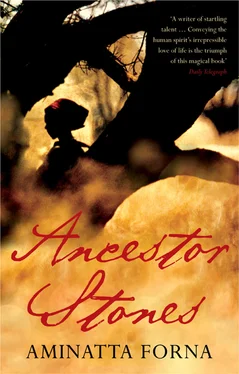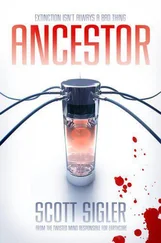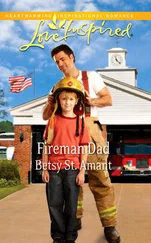When a person dies our people cry and sing. The drums sound. The house is home to many visitors. When my mother went away there was silence. My father’s house was still. The silence slid down the mud walls. Great drops stretching slowly from the eaves, smothering the thoughts that hung in the air. It clotted every crevice. It rose in the back of my throat when I tried to ask about my mother, and threatened to make me retch. It filled the house until we could no longer open our mouths for fear of drowning in it.
My father, in order to avoid being drowned, went away on business with his sixth wife.
And this same time was when the dancing stopped. The steps followed mama when she walked out of the village. She went, leaving behind everything, even her name. So I wrapped it in longing and kept it for her.
Clouds spread over the sky. Overripe fruit drops from the trees at night and morning brings the smell of wet earth and the sweet stink of rotting flesh. The river is dammed. The water rises. After dark, house-children — black-eyed geckoes — feast on swarms of mosquitoes.
I was sharing a plate of rice with my sisters at the back of Ya Namina’s house when mama’s ghost walked back into the village. Three people saw her with their own eyes. Salia Bangura and his woman had argued and he was late that morning. She walked past them both without a word of greeting. The alpha was shaving with a piece of broken mirror on the steps of the mosque. Over his shoulder he saw the figure of a woman, dripping with dew. Afterwards he pointed at the shattered glass, dropped in fright. Old man Bangura, spoiling for a fight he could win, began an argument over whether a ghost would possess a reflection. Nobody could agree. What they did agree on was this: spirit or mortal man, it walked straight up the main road towards our father’s house.
We heard them shout and dropped our plate. We ran with greasy mouths and fingers. But by the time we reached the place where the three of them stood with open mouths, she had vanished.
The next time I see her for myself.
Up the river mangroves crowd the banks. There we like to dive into the muddy waters and pull oysters from the tangled roots. Below, the river spreads out, glistening green, weed streaming just below the surface like a witch’s hair. Here boulders are scattered across the sand, black pearls at a Tuareg woman’s throat. It is morning, raining. Drops of rain splash on to the water, as though on to a scalding pan. Steam rises from the bottomless below. Insects race along the surface of the water, escaping on pinpoint feet. It was once my favourite place. I used to come here and dig fish out of the mud, fish with no fins and bulging eyes.
At first I don’t notice her, standing half hidden in the shadows on the sharp line where the trees meet the river, in front of the abandoned fishing hut. Her hair is scattered about her shoulders in tangled ropes. Her dress is tattered, torn at the neck so it hangs down like a flap of skin. One breast is naked, tilted up, pointing at the sky. She is watching me.
I climb down from the rock, slowly. Afraid of startling her. She is so very still.
‘Mama,’ I cry. I start to run. She jerks slightly. Takes a step towards me, extending clasped hands, like she is begging me for something, imploring me. ‘Mama,’ I run faster, I catch my foot on a rock. She steps into the sunlight.
That day some boys from the village on the opposite bank had crossed to set some traps on our side. Now they see her.
‘Hai! Hai!’ One of them bends to pick up a stone.
‘Leave her alone!’ But I’m too late. Like a hounded stray my mother cowers, starts to back off. She is gone before the stone hits the branch of a nearby tree. A shower of splintering bark and leaves. I race to the boy nearest me and push him in the chest. Hard with the heels of my hands.
‘She’s a crazy woman,’ he touches his temple and laughs loudly, ‘Craz-y. Let her go from here.’
I run after her. I run behind the fisherman’s hut. She is nowhere. Inside the hut a tree grows through the middle, out through the roofless roof. The mud is crumbling away from the walls, leaving wooden poles exposed like ribs. Inside there is a place on the floor, like the warm spot underfoot where a chicken has roosted for a while.
Pa Foday: he brought my mother back. As soon he came back from the plantation and heard the news. Without even a lamp, he searched all night until he found her. I remember that night because of the dry thunder. The lightning lit up the sky as bright as day. I prayed it would help Pa Foday.
And it did. He walked into the village leading her gently. And my mother walked behind him as though she had only just learned how, as though the soles of her feet were tender as a newborn’s and had never touched the ground.
Pans of boiling water. Balls of soap. Comb. Clarified palm oil. Fresh clothes. Under the supervision of Ya Namina the two junior wives entered and left the chamber where they kept my mother. We waited outside like we had the time before. Later I heard them whispering to each other at the back of the house. But when they saw me hovering close by they stopped talking. They stood up and walked away, gathering their lappas around them, as if to cover their indiscretion. Little hurried steps. Shuffle, shuffle.
I crept up to the back of the house. I took a stool and placed it beneath the window. I braced myself when it creaked under my weight. Half up. Half down. On one leg. In the room at the end of the house I heard Ya Namina and my father talking. I thought maybe I would creep along the wall to listen. But I wanted to see my mother. I pressed my sloping eye against the crack between the plaster and the window shutter.
Still to this day I can picture her, so clearly I could keep her there for ever. They had shaved her head. What else to do? Hair so badly matted it shattered the teeth of the comb. They threw the locks on the fire. Days later I found a singed lock lying in the ashes. I stole it, hid it in a crevice in the rocks — at the place Bobbio and I once hung out eating green mangoes. A long time ago.
Alone in her room, she was dancing. No faltering footsteps, no baby gait. Body curved like a palm tree yielding to the embrace of the wind. One foot crossing the other. Crossing the other. Arms extended. Chin lifted. Head tilted: naked, shaved head. Fingers fanned backwards. Turning a perfect arc. Round and around.
Round and around.
In the end Bobbio, the Boy with No Voice, was the only person who dared to break the silence.
Early evening. The light, heavy with dust, hovered between day and night. I sat on the three-legged stool at the back of the house, filling oil lamps. I looked up to find Bobbio standing close by. Watching me in silence, unblinking. Like a house-child. Like he could see into my soul. That was a thing about Bobbio, I remember. He could hold anybody’s gaze. For him there was nothing to it. Even after they looked away, he just carried on gazing at the back of their head. People learned to avoid catching his eye for fear of inadvertently starting a staring match. In fact, people often pretended Bobbio wasn’t there at all. I knew what it was now to have eyes slide over you, like greasy eggs in a pan.
Bobbio led me by the hand. Down to the river bank. Made me stand on the jagged rocks, pressing my shoulders down with balled fists. Then he stared at the ground, concentrating. He began to stamp and kick, like a cricket hopping about on smouldering grass, pick up stones and throw them over his shoulder. He flung a pebble at the water. It bounced once and sank.
I had never seen Bobbio act this way. Flecks of foam flew from the corners of his mouth. A shiver trickled down my back, a trail of goosebumps in its wake. People said a krifi called Tang Bra lived here. Boatmen told tales of an invisible weight in the back of their boats. The mud dragging at their poles. Nobody came to this place at night.
Читать дальше












